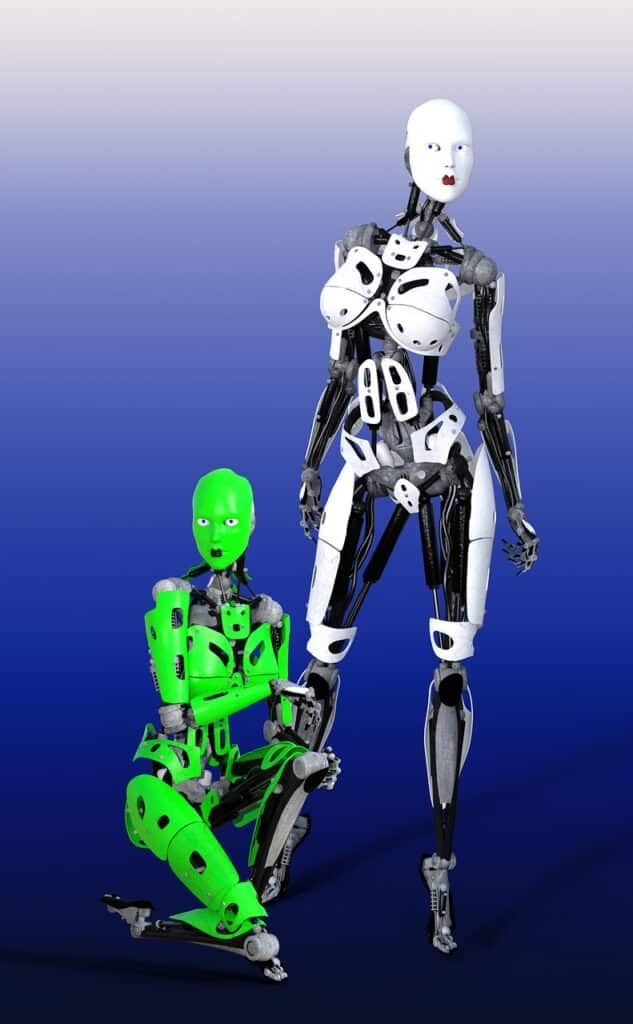In the dynamic world of business, constant evolution is the key to survival and success. “Exploring the Influence of Intelligent Automation in Business” highlights the cutting-edge integration of artificial intelligence and machine learning with automation technologies, designed to perform monotonous tasks efficiently. This breakthrough, commonly referred to as “intelligent automation”, is proving to be transformative for various industries, paving the way for significant growth and innovation. Accentuated by IBM’s prognosis of billions of dollars in labor value creation by 2022, this article further brings to light the diverse faces of automation, including basic, process, advanced, and intelligent automation. The advantages of implementing such technologies are manifold: streamlining operations, optimizing resource usage, enhancing customer experience and satisfaction, and fostering business growth. The utilization of automation for diverse functions like email marketing, sales processing, HR tasks, financial planning, accounting, and more, is made seamlessly accessible through platforms like IBM’s Cloud Pak for business automation. In essence, the article provides a snapshot of the immense potential and far-reaching impacts of intelligent automation in the business landscape.
Understanding Intelligent Automation
Defining ‘Intelligent Automation’
At the intersection of technology and business, we can find the concept of Intelligent Automation. This term refers to the advanced systems that leverage artificial intelligence and machine learning to enhance automation capabilities. Beyond merely executing programmed commands, these systems can learn from data, recognize patterns, make decisions, and improve their own performance over time, bringing ‘intelligence’ to automation.
The Role of AI and Machine Learning in Automation
Artificial intelligence and machine learning play critical roles in automation, particularly in the realm of intelligent automation. These technologies endow machines with cognitive abilities, allowing them to understand and learn from data patterns, make intelligent decisions, and adapt to new situations. This transformation has led to a new category of automation that is creative and adaptive rather than deterministic and static.
Differentiating Basic, Process, Advance and Intelligent Automation
In the sphere of business automation, it’s essential to differentiate between basic automation, process automation, advanced automation, and intelligent automation. Basic automation includes single-step tasks, like organizing files in a folder. Process automation connects and streamlines multiple tasks, creating end-to-end workflows. Advanced automation incorporates the iterative decision-making process, enabling machines to handle complex tasks. Lastly, intelligent automation combines all these aspects with AI and machine learning abilities, enabling a system to self-learn, self-correct and evolve.
The Impact of Intelligent Automation on Business
Streamlining Operations
Intelligent automation streamlines business operations by replacing repetitive, mundane tasks with automated processes. It can handle large volumes of data quickly and accurately, reducing errors. As a result, businesses can achieve operational excellence, reduce costs, and focus human talents on strategic initiatives.
Removing Human Labor
Introducing intelligent automation in business processes can replace tasks traditionally performed by humans, especially routine ones. The removal of human labor from such tasks allows companies to repurpose their human resources towards more creatively intensive and high-value activities.
Promoting Business Growth
Intelligent Automation is more than just efficiency – it’s a growth driver. By automating tasks, businesses free up resources and time, allowing employees to focus on innovation, strategic planning, and critical thinking. Furthermore, with improved accuracy and efficiency, businesses can also enhance customer satisfaction and loyalty, leading to growth.

Intelligent Automation and Customer Interaction
Improving Customer Experiences
Intelligent Automation can drastically improve the customer experience. By automating customer service tasks, businesses can provide faster, more accurate responses, and support to their customers. Additionally, AI and machine learning can enable personalized experiences, making customers feel more valued and understood.
Increasing Sales
Intelligent Automation can also help boost sales. Automated email marketing, recommendations, and upselling can assist businesses in reaching out to more customers, and AI can also help in analyzing customer behavior and predicting shopping trends, enabling more strategic sales approaches.
Utilizing Resources Efficiently
Efficient resource usage is another advantage of Intelligent Automation. It can optimize the use of every asset, from data and processing power to human resources.
Enhancing Customer Satisfaction
By providing prompt and personalized services, improving product quality, and minimizing errors, Intelligent Automation can significantly enhance customer satisfaction. Satisfied customers do not only continue patronizing a business but also recommend it to others, leading to long-term loyalty and increased market share.
Application of Intelligent Automation in Business
Automating Email Marketing
Intelligent automation can revolutionize email marketing. Instead of large-scale impersonal emails, businesses can automate individually tailored messages based on a customer’s purchase history or behavior, improving engagement and retention.
Streamlining HR Tasks
Human resources can also benefit from intelligent automation. Automated screening of CVs, candidate shortlisting, scheduling of interviews, and other tasks can save a significant amount of time, leading to a more efficient recruitment process.
Revolutionizing Sales Process
By automating the sales process, businesses can reach more customers and respond more swiftly to inquiries. AI can analyze customer behavior and predict trends, helping sales teams to strategize effectively.
Simplify Financial Planning and Accounting
Financial planning and accounting are other areas where intelligent automation can make a significant difference. By automatically generating financial reports, forecasting trends, and detecting discrepancies, it can improve accuracy, save time, and provide valuable insights for better decision-making.

Economic Significance of AI-Supported Automation
Projected Economic Values
The economic value projected by AI-supported automation is astronomical. For instance, IBM foresees that it will generate billions of dollars in labor value in 2022, exhibiting its tremendous potential to revolutionize economies worldwide.
How AI-Supported Automation Contributes to Economy
AI-supported automation contributes to the economy by creating efficiencies, promoting innovation, and freeing human labor for more valuable tasks. With reduced costs and improved productivity, businesses can compete more effectively, contributing to economic growth and job creation in new fields.
The Role of IBM in Business Automation
Introduction to IBM’s Automation Platform
IBM has played a pivotal role in the development of business automation with its state-of-the-art automation platform. This comprehensive tool is designed to help businesses automate routine tasks, analyze data, and make more informed decisions, aided by AI-generated recommendations and user-friendly low-code tooling.
Benefits of IBM Cloud Pak for Business Automation
IBM Cloud Pak for Business Automation is a versatile platform that reduces the time spent on manual processes and saves customer waiting times. Leveraging this system aids businesses in streamlining operations, enhancing productivity, and delivering superior customer experiences.
How IBM Facilitates Efficient Business Operations
IBM supports efficient business operations by providing robust automation solutions. These solutions can automate tasks, handle variations in data, and generate valuable insights, enabling businesses to improve agility, reduce costs, and foster innovation.

Analyzing Types of Business Automation
Business Process Automation (BPA)
Business Process Automation (BPA) is about creating defined workflows to achieve end-to-end processes with accuracy and speed. It streamlines the organization’s sequential tasks toward a specific goal, thus reducing costs and improving efficiency.
Robotic Process Automation (RPA)
Robotic Process Automation (RPA) involves using software robots or ‘bots’ to automate highly repetitive and mundane tasks. RPA is a non-invasive technology that mimics human actions and connects disparate and legacy systems.
AI-Powered Automation
AI-powered automation represents the future of business automation. It combines BPA and RPA with machine learning and cognitive abilities. This not only automates routine tasks but empowers systems to recognize patterns, learn, improve, and make intelligent decisions.
Exploring Business Automation Strategies
How to Plan for Business Automation
Planning for business automation starts with identifying and assessing the business processes suitable for automation. It should then involve outlining clear goals, allocating resources, and putting measures in place to evaluate automation performance.
Best Practices for Implementing Automation
implementing automation should be a carefully curated process, entailing the selection of the right automation tools, clear documentation of processes, employee training, and ongoing monitoring to gauge performance.
Maintaining and Improving Automation Setup
Maintaining your automation setup involves regular audits, keeping systems updated, and continuously adapting the setup to meet evolving business needs. It’s also crucial to continuously seek improvements and refine processes to ensure optimization.
Challenges and Solutions in Implementing Intelligent Automation
Common Obstacles in Automating Business Process
Despite its benefits, automating business processes presents several challenges, such as resistance to change, lack of skilled personnel, and high upfront costs. Further, businesses may face technical challenges in integrating various systems or ensuring smooth data flows.
Effective Strategies for Overcoming Challenges
Organizations can overcome these challenges through effective training, change management, and choosing scalable, versatile, and user-friendly automation tools. In addition, hiring or training staff with the right skills and ensuring ongoing monitoring and adaptation can contribute to successful automation.
The Future of Intelligent Automation
Trends that will Shape the Future of Intelligent Automation
In the future, we can expect to witness AI algorithms becoming more sophisticated, with enhanced learning capacities and decision-making abilities. In addition, integrating automation with other emerging technologies like IoT, blockchain, and quantum computing will create new opportunities for innovation.
Expected Developments in the Field of Automation
Collaborative human-machine workflows, higher degrees of personalization, real-time predictions, and decision-making are some developments we can expect in mobile automation. Furthermore, autonomous operations and self-healing systems may no longer be a thing of science fiction but a reality in the field of automation.
In conclusion, the importance of intelligent automation in today’s business environment cannot be overstressed. Leveraging AI and machine learning in automation not only streamlines operations and drives growth but reshapes industries, propelling businesses towards a future of endless possibilities.
